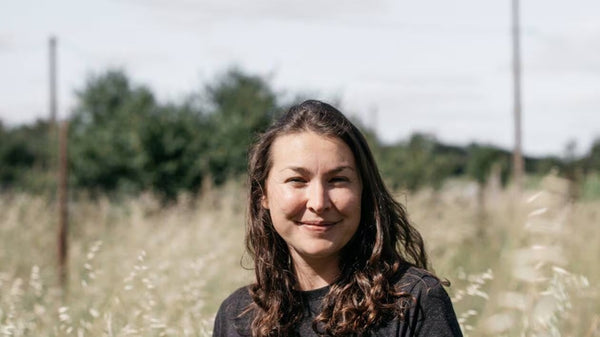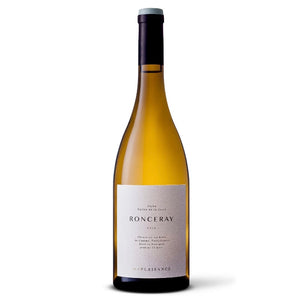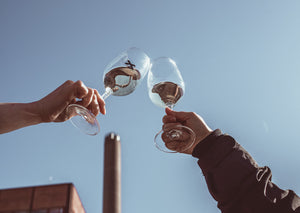
Château de Plaisance
35-year-old Vanessa Cherruau, who comes from the Loire Valley, moved back to Angers in 2017 after previously working in the Champagne region as an export manager. Vanessa's family does not have a background in wine, and the woman herself also studied communication before, after participating in wine tastings, she was inspired to change fields and studied winemaking. After moving back to her home region, the dream of her own 4-5 hectare vineyard began to creep into Vanessa's mind, but the four consecutive years of frost that plagued the Loire Valley made it difficult to realize the dream. Finally, in September 2019, Vanessa found an organic certified Rochais family farm that the old owner was willing to sell. The space was bigger than the original plan, but luckily Vanessa had the support of some French investors who were not so much interested in short-term results, but in investing in an organic and ethical project.
The vineyards in the Chaume region have long been quoted as particularly high-quality for the production of Chenin Blanc. However, the region's legislation does not allow Chaume's indication of origin on the labels of dry wines, which is why most of Vanessa's wines are classified under AOC Anjou. Of the 25 hectares of Château de Plaisance, 17 hectares are used for vine cultivation, while the rest of the land is not planted. 80% of the vines are Chenin Blanc, the rest being Cabernet Sauvignon and Cabernet Franc. All vines are planted with the help of selection massale, whereby the new vines continue to strengthen the identity of the previous vines and, with them, the nurseries. Most of the orchards are classified as Premier and Grand Cru, and there are three hectares of vines in Savennières, also north of the Loire. The nurseries have been managed organically by the previous owner of the farm since 1995, and biodynamically since 2008. Demeter was selected as a suitable certificate, because only Demeter limits cellar work so that the wine drinker knows that the wines are not manipulated. When Vanessa became the owner of the farm, she also started a project to protect the local birds, and has planted a lot of trees on the farm and built bat shelters. Therefore, Plaisance's wine production is meant to increase the area's biodiversity instead of consuming it.
Although the vineyards of Chaume and Quarts de Chaume were initially intended for the production of sweet wines, Vanessa focuses on the care of her vineyards to produce healthy grapes suitable for dry wines. Noble mold is not allowed in the production of dry wines at all. During the harvest, each picker has two buckets next to him: one for healthy grapes and the other for botrytis-infected individuals. During the harvesting of the grapes and the subsequent winemaking, we avoid overripeness and oxidation, and focus on precision and freshness. After coming from the barns to the cellar, the grapes are cooled before the two presses start their long-lasting work. Free-flowing juice is always separated from pressed juice, and each of the 45 different plots is vinified separately. When the grapes are received, 1,5 g/hl of sulfur dioxide is added to them, but otherwise no pied de cuve, yeasts or enzymes are used in the fermentation of the wines. So far, all fermentations have started quickly, so problems have been avoided. In 2019, about half of the vines' yield was lost to frost, which is why the grapes that were saved were particularly concentrated and had high alcohol content. The fermentation processes lasted up to 10-11 months and the wines were allowed to mature the whole time on the lees without bâtonnage, which gives them richness, but not heaviness. The fermentation processes are started in steel tanks, but as soon as a change in the specific gravity is noticed, where it is known that the alcoholic fermentation has started, the wines are placed in oak barrels. Before Vanessa, barrels made of acacia wood were mainly found in the farm's cellar, but they started to be replaced with oak barrels that had been used 3-5 times from good producers. Only 15% of the barrels had to be bought new. In addition to the smaller barrels, there is also one 25 hl oak vessel and cement vessels in the cellar. During bottling, very little sulfite is added to the wines, only about 20 mg/l. Light glass bottles are used as bottles, thanks to which the farm's carbon footprint has been reduced by up to 30%. The labels and bottle boxes are made from recycled paper, and the bottles are also planned to be recycled in the future.
Total production in 2019 was around 60,000 bottles. The producer has a Demeter certificate.




